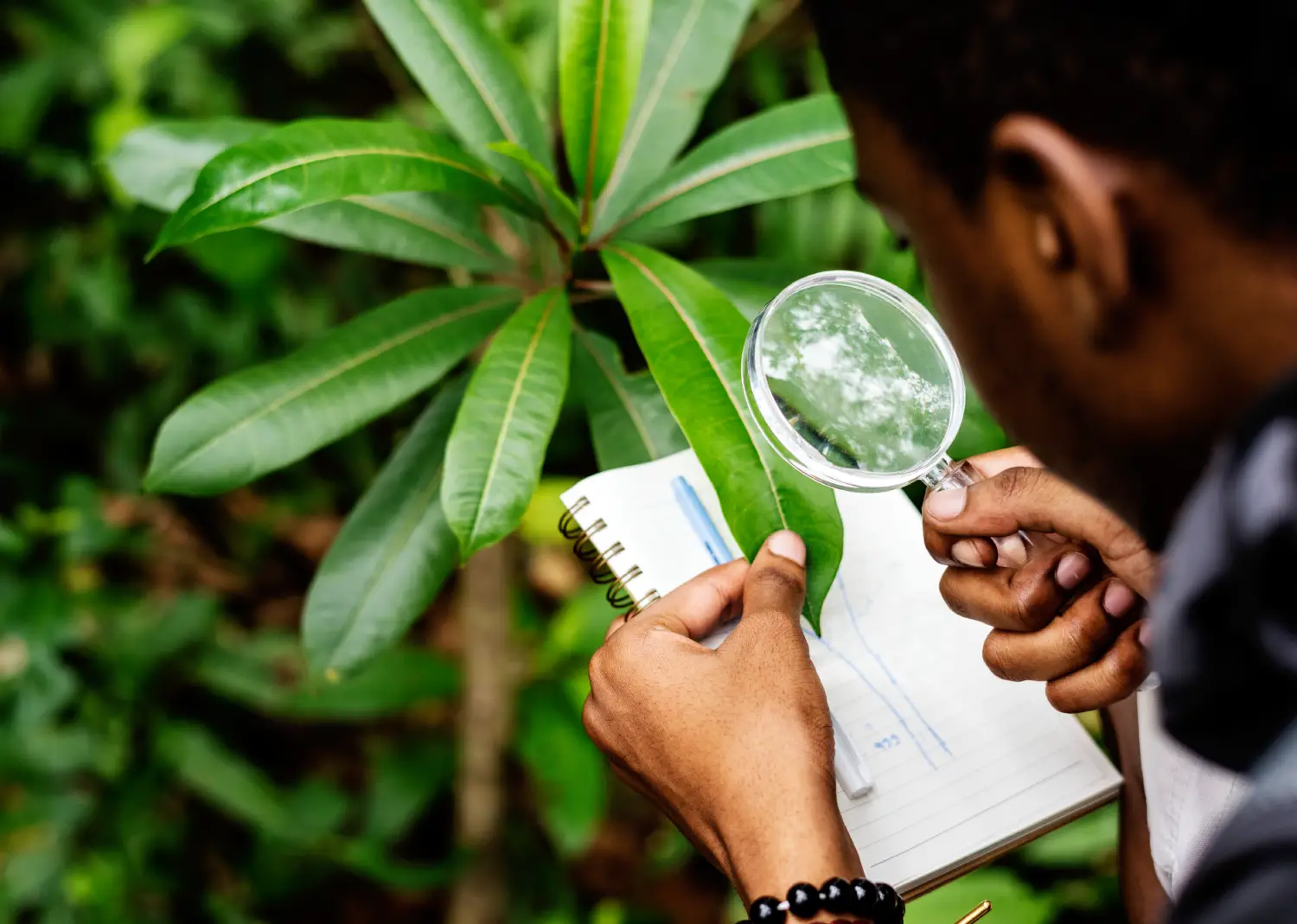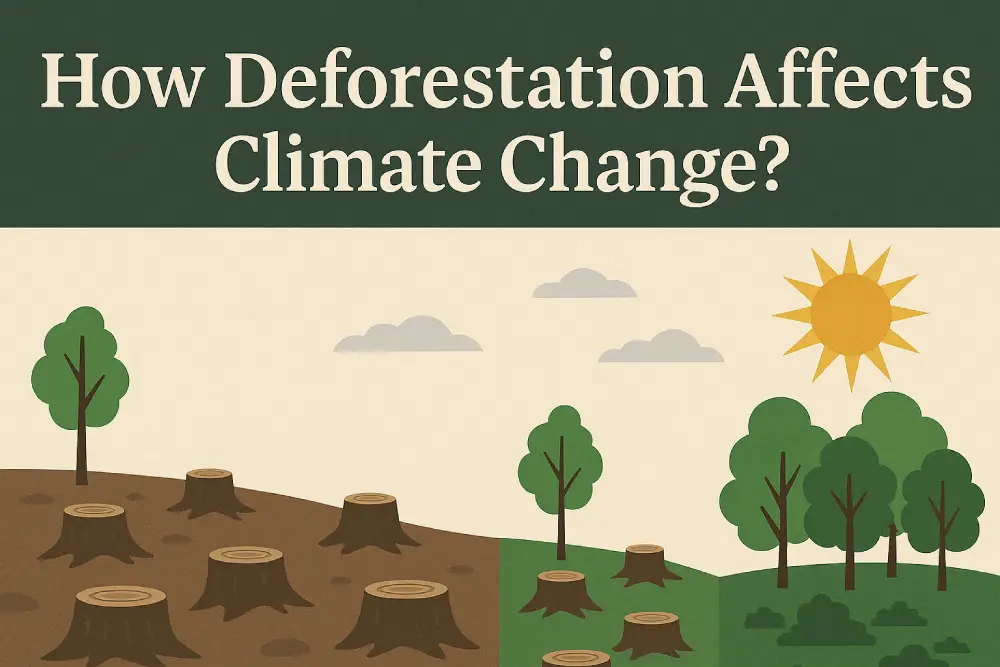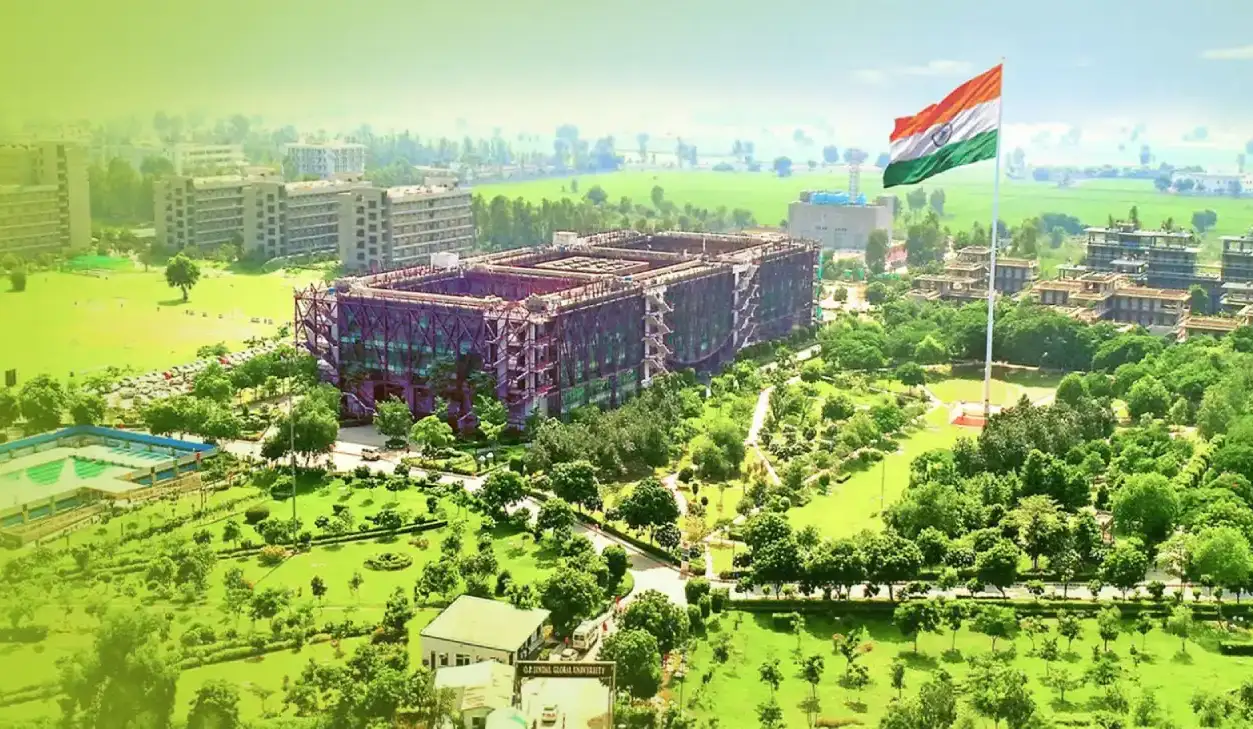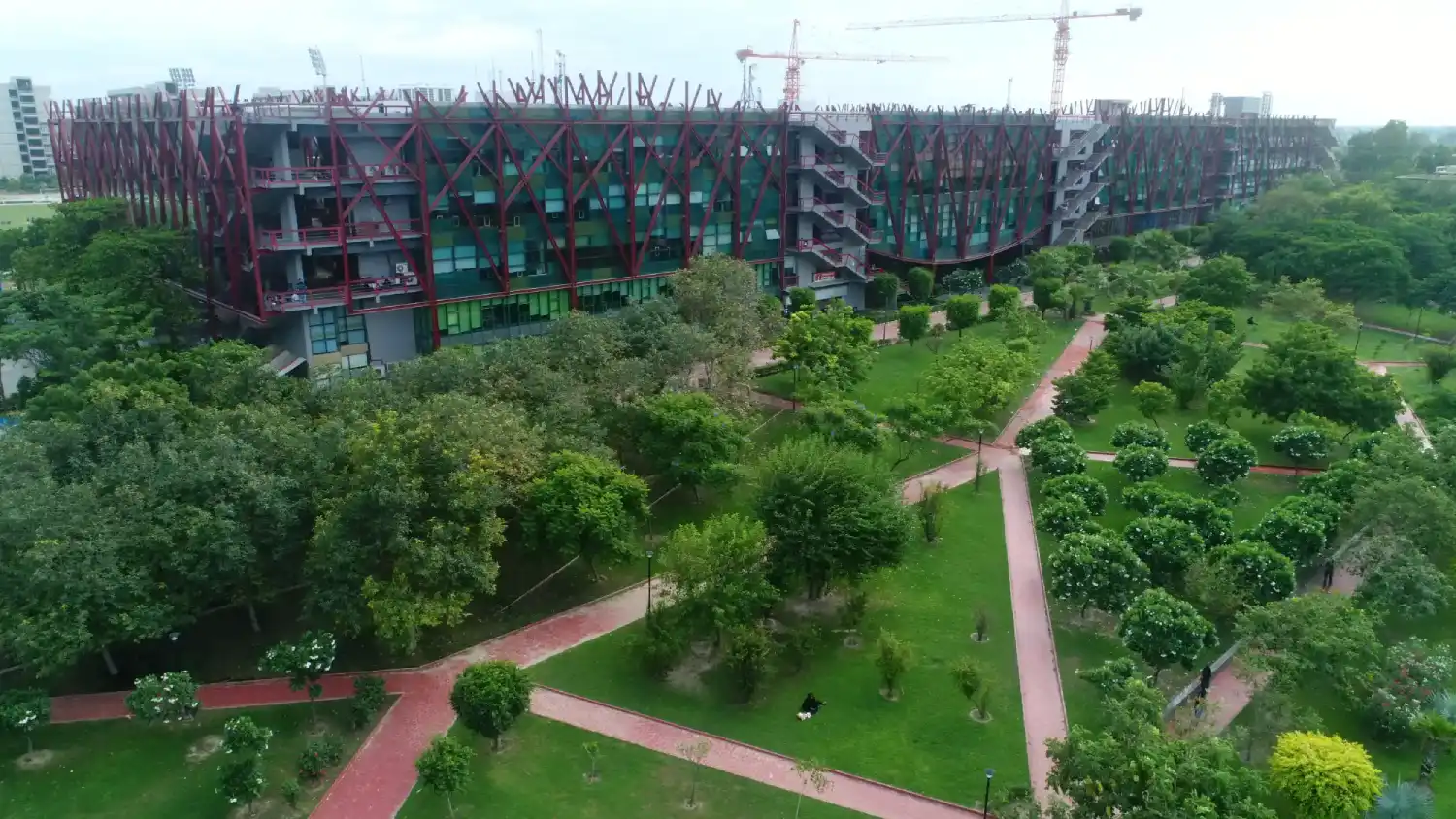Introduction The Earth’s environment has long offered the ideal conditions for life to emerge, evolve, and thrive. However, over the past 200 years, parallel to rapid industrialisation, technological advancement, and the rise of modern cities, the planet has experienced unprecedented environmental strain. As global concern grows, the best universities for environmental science in India and abroad have taken on a vital role: to educate, inform, and inspire individuals to recognise the environmental crisis and contribute meaningfully toward a more sustainable future. A Brief Understanding of Environmental Science Studies Earth’s natural resources have supported the survival and evolution of all living organisms. However, with human advancement and the pursuit of rapid growth, the reality of limited resources and the urgent need for preservation became undeniable, only in recent history. Environmental Science has emerged as a formal discipline dedicated to understanding environmental challenges and proposing solutions rooted in sustainable development. Drawing insights from biology, ecology, geology, chemistry, physics, engineering, and meteorology, Environmental Science examines the impact of human activity on the planet. The best universities for environmental science in India combine strong theoretical foundations with practical exposure, offering students a clear and comprehensive understanding of the world’s environmental realities. Why is it Important in Today’s Environment? In 2025, the subject of Environmental Science has become the need of the hour, especially if one aspires to lead a healthy life, leaving abundant resources for future generations. The environmental crisis is unprecetended, requiring collective awareness and initiative needed to bring the situation under control. …
Categories
Introduction Since the birth of human civilisations, development has been a crucial thing for the progress of any community, state, or country. However, in recent years, the cost of unprecedented development has been linked to the exploitation and depletion of natural resources to an alarming extent. This revelation has initially spurred most, but as a means to provide an actual solution, proper planning and policies for the environment and sustainable development have become the most sincere subjects in recent times. The goals, ideals, and values of sustainable development promote equity, biodiversity, cultural preservation, and coexistence and development for all species. A Brief Explanation Of Environment & Sustainable Development After World War 2, there has been a growing concern about the environment and its relation to human development. Hence, the concept of sustainability started going mainstream. Human intervention has been detected as one of the leading causes for environmental degradation, and to make effective choices and changes to make amends, one needs to first grasp the answer to ‘what is sustainability?’. The purpose and the goals of sustainable development are very clear on the lines of green technologies, organic production and consumption, lowering carbon footprint, eradicating poverty, and safeguarding life on the planet, as well as saving the planet itself. The Brundland Commission defines sustainable development as “a form of development that meets the needs of the present without compromising future generations’ ability to meet their needs.” Importance & Benefits Of Environment & Sustainable Development Programmes The benefits of sustainability are …
The expansion and advancement of human civilization for thousands of years have happened at the cost of the environment and nature; the realisation and resolve are only new and trivial, to say the least. This is why the development of environmental studies and plans to promote sustainable development has been widely accepted at a time when the cost of the environmental degradation caused by humans is starting to show its dangerous consequences. The discipline of Environmental Studies was first established in the 1950s at Syracuse University, a New York State College of Forestry. Today, the importance of environmental science is undeniable, and its impact are evident with educational boards across the globe, adopting the module as a compulsory course even at a fundamental level. What is Environment & Sustainable Development all About? Environmental science education is a compulsory course introduced at elementary level to raise awareness about environmental issues. Theoretically, Environmental studies are focused on understanding the interaction between humans and nature. In doing so, what was uncovered was far graver than anticipated, and hence, the study of Environment and Sustainable Development became instrumental. The awareness of manmade environmental issues has an ancient history dating back to the collapse of Israel and Jordan in 6000 BCE; one of the reasons for the collapse is believed to be severe deforestation. The idea for the Environmental Science program began to take shape in the 1900s. After two world wars and the rising number of environmental problems at our disposal, by the start …
Introduction B.Sc. in Environmental Science has become essential, as human activity continues to aggravate environmental and climatic damage—much of it now seen as irreparable. With growing ecological concerns, the demand for academic programmes like this has surged for all the right reasons. Environmentalists argue that we are currently living through an era of biodiversity collapse—an issue as complex as it is urgent. According to reports, relentless extraction of natural resources has led to human modification of 77% of terrestrial and 88% of marine ecosystems. This has resulted in the loss of 83% of the world’s mammal biomass and nearly half of all plant biomass. An Eco-Friendly Approach For The Future There are ample factors responsible for the rapid environmental degradation. Consequently, there have been numerous attempts made to reverse the effects and ensure a future on eco-friendly grounds. In 2015, the United Nations took up an initiative named as Sustainable Development Goals or SDGs, calling for a plan focused on 17 global issues in the hopes of restoring a balanced social, economic & environmental sustainability by 2030. The dangers of deforestation, heavy industrialisation, and greenhouse gas emissions are steadily coming to light, and the past 200 years of human progression stand in the shadow of an inevitable global crisis. However, all hope is not lost, and the progress of human technology and sciences has also permitted ways to minimise the damage and develop sustainable alternatives without further harming nature. The shift from fossil fuels to renewable energy, along with initiatives …
Introduction The Earth’s climate has always experienced slight fluctuations; however, these natural variations do not account for the current climate change phenomenon, which has severely disrupted weather patterns and triggered widespread environmental changes across the globe. Today, climate change has emerged as a global crisis, affecting every nation on the planet. One of the most critical contributors to this issue is the impact of deforestation on climate change, as large-scale tree loss increases carbon emissions, reduces carbon sinks, and accelerates global warming. Scientists have openly acknowledged that the ongoing environmental degradation and the compounded effects of global warming are primarily driven by human activities. To create meaningful change on a planetary scale, rigorous research, academic studies, and committed groundwork are essential—starting from local and regional initiatives and scaling up to a global effort. How Does Deforestation Affect Climate Change? The human activities of over 200 years have cost the whole world dearly, raising the Earth’s surface temperature by 1.2°C. On paper, it may not say or seem much, but the effects of global warming are slowly but steadily seeping into ordinary lives. One of the many reasons for this change has proven to be the vast levels of deforestation done in the name of civilization, progress and many other things. The rich biodiversity of the planet Earth are the very resource that makes this planet inhabitable, and the years of human destruction have unsettled the delicate balance, and the changing weather, heatwaves, untimely floods and cyclones are the direct result …
Introduction The world today is suffering from myriad environmental and sustainable development challenges. These include, among others, climate change, biodiversity loss, deforestation, air and water pollution, and unsustainable urbanisation. There is a dire need to address these problems and challenges because they threaten global ecosystems, people's livelihoods, and human health & well-being. If you are passionate about tackling these issues, exploring environmental science courses in India can be the first step towards equipping yourself with the right knowledge and skills. Climate Change and Biodiversity Loss: A Looming Crisis Climate change is already increasing the intensity and frequency of extreme weather events, altering rainfall patterns, and threatening agriculture and freshwater availability. The loss of biodiversity is an equally concerning threat that not only disrupts the balance of nature but also causes economic losses in both developing and developed nations. Moreover, each species plays a unique role in maintaining ecosystems; the sudden loss of key species can disrupt entire food chains, resulting in the collapse of entire ecosystems. Some magnificent species are on the brink of extinction, and it will surely be tragic if future generations are unable to see them. More visible among these challenges is the rampant air and water pollution in our cities. Cities, especially in developing countries, are becoming increasingly difficult to live in without face masks and air purifiers. Water bodies and green cover are disappearing, transforming urban areas into concrete jungles. Urban birds are either vanishing or becoming confined to smaller pockets. The high consumption rates …
Environmental Careers To say that there is a dearth of environment and sustainability specialists in the market today would not be an understatement. Some reports suggest that approximately 20% of the Indian workforce is currently employed in “green jobs.” This is expected to increase to 40% by the year 2030. A cursory analysis of the job profiles posted on various online job platforms reveals that the demand for specialists in environmental science has increased by 80-85% during the last year. The majority of these jobs are located in urban metropolitan areas of India like Delhi-NCR, Mumbai, Chennai, Kolkata, Pune, etc., and across the globe. More interestingly, these jobs are spread across all kinds of economic sectors, major industrial houses, and multinationals. Sectors that are consistently looking for green graduates from an institute of environment & sustainable development include Energy, Pharma, Automobiles, Fashion & Design, Infrastructure & Construction, Banking & Finance, Consultancies, Water & Energy Policy, Think Tanks, etc. Market leaders such as E&Y, KPMG, Enzen Global, Evans Denham, H&M, Novartis, L&T, PerkinElmer, Garrett, ExxonMobil, JLL, Hitachi Energy, Schneider Electric, ERM, World Resources Institute, Indicus Foundation, Council on Energy, Environment & Water, Tata, Infosys, NTPC, UltraTech, and Wipro have regularly issued public advertisements seeking environmental specialists. Unfortunately, owing to a dearth of trained environment & sustainability professionals, they are forced to outsource the jobs to external agencies or hire consulting firms to train their workforce for “green roles.” Career Paths & Opportunities For a more focused understanding of these jobs and …
There is no turning back the clock or returning to the times when the environment and climate were not at a breaking point. While we have become the most technologically advanced species, not much has been done for the environment and climate, and this phenomenon of change is very recent. However, this growing concern has shed light on the practice of environment and sustainable development, bringing it to the mainstream. According to a 2018 report by the Intergovernmental Panel on Climate Change (IPCC), there are only 12 years left to make significant changes to combat climate change effectively. To avoid catastrophic climate impacts, global temperatures must not exceed an average increase of 1.5°C compared to pre-industrial levels. Current trends indicate that without drastic measures, we could see an increase of up to 6°C, which would have devastating consequences for ecosystems and human societies. The study of the environment and sustainable development aims to build and develop sustainable materials that do not further harm nature. For thousands of years, humans have unknowingly extracted the majority of natural resources. Consequently, the need for sustainable development and the use of innovative materials and methods are now being explored. The sustainability market is projected to reach $48 trillion by 2030. This growth underscores the increasing importance of sustainability in business and the need for skilled professionals who can overcome this challenge. Before we delve into the courses and modules of academic programmes relating to the environment, climate, and sustainable development, let us look at …
India is at a crossroads in a world where environmental challenges are escalating rapidly. The future of the country will depend on how well it establishes the balance between development and environmental conservation. The need for sustainable practices becomes even more crucial as the nation grows and modernizes. With a population of over 1.4 billion, India faces a unique set of challenges, ranging from severe air pollution to water scarcity and climate change impacts. It is in this context that environmental education and sustainable development have gained much importance. For students, it is not just a career choice but a way to make a meaningful impact on the future of the planet while pursuing degrees such as a B.A. (Hons.) in Environment and Sustainable Development or a B.Sc. in Environment and Sustainable Development. Let's take a quick dive into the need for environmental education, the prospects for graduates in this field, and why these degrees are pivotal for the future of India. The Future of Sustainability in India India’s future is intertwined with its commitment to sustainability. As one of the world’s most populous countries, India faces unique environmental challenges, including high levels of pollution, over-exploitation of natural resources, and climate vulnerability. These issues are exacerbated by rapid industrialisation and urbanization. However, India is also emerging as a global leader in renewable energy and sustainable development. Renewable Energy Initiatives India has made impressive strides in renewable energy, with ambitious targets set for the coming years. By 2030, the nation aims …










